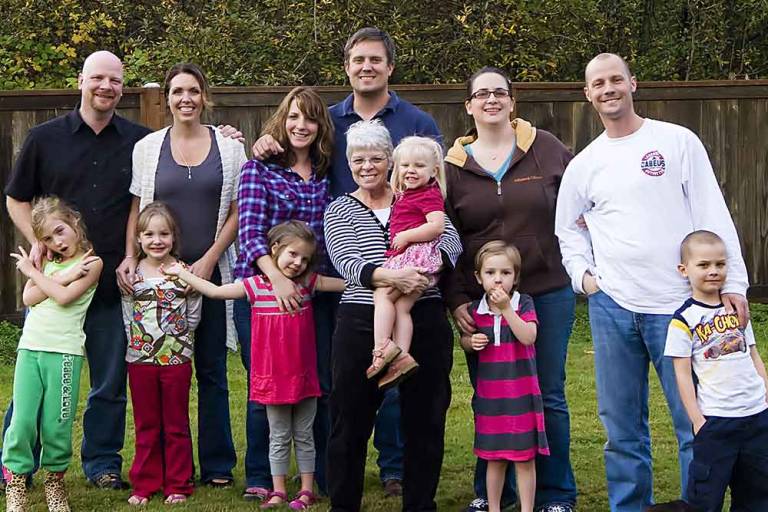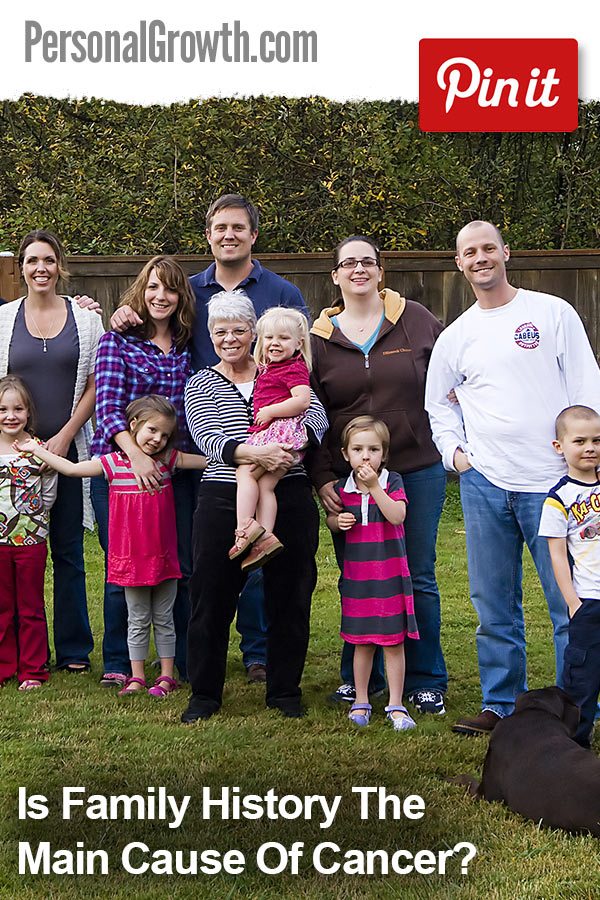

If something is hereditary, it is inherited through your parents’ genetics. Some hereditary factors are a blessing, such as dazzling green eyes. Other hereditary traits are feared and dreaded, like certain potentially fatal diseases.
So, is cancer—the second most common killer in the world – a hereditary condition? In other words, if you have a parent, grandparent or uncle who died of cancer, do you have a higher risk of developing some form of malignancy within your lifetime?
Most people believe that genetics play a significant role in causing cancer—if they have a relative who has been diagnosed, they often assume that they’re destined to receive a similar diagnosis at some point in life.
However, the surprising truth is that in most instances, cancer is not caused by hereditary factors—the American Cancer Society estimates that a mere 5% of cancers are genetic in nature. This means that in 95% of cases, cancer is caused by something else entirely (though that cause is often poorly understood).
When Cancer Is Hereditary
Your biological parents both pass on some of their genes to you, and some of these genes may be defective in some way. If your mother or father has a faulty gene of some sort, you have a 50% of ending up with that same genetic flaws—and some of these faulty genes predispose you to developing certain types of cancer.
It’s vital to understand that simply being born with a gene linked to cancer doesn’t mean you will end up with cancer caused by this gene. All it means is that you’re more likely to develop this form of cancer than someone who doesn’t have the faulty gene.
A useful illustrative example here involves the BRCA1 and BRCA2 genes that have frequently been in the news in relation to celebrity cases. Inherited mutations in these particular genes can cause cancers of the ovary and breast, and tend to do so at a younger age than that at which most other cases of ovarian and breast cancer develop.
To put the risks into perspective, it’s helpful to know that these inherited genes cause around 20-25% of hereditary breast cancers and between 5% and 10% of all breast cancers.
To complicate matters, genetic susceptibility interacts with other risk factors, such as environment, reproductive history and adopted habits.
Uncontrollable risk factors also have a part to play—BRCA1 and BRCA1 mutations seem to develop more often in people of certain ethnicities. Specifically, those who of Dutch, Icelandic, Ashkenazi Jewish or Norwegian descent are more likely to have the cancer-causing mutation.
For those who are wondering whether they might have hereditary risks of cancer, there are tests that look for potentially faulty genes. Generally, genetic counseling is offered along with these tests to help people make sense of what the results mean and how they can be used to make decisions.
For women who learn that they have an increased hereditary likelihood of suffering from breast cancer, there is the option to have a bilateral prophylactic mastectomy to dramatically diminish this risk. Genetic counselling can help such women decide whether to have this procedure or to instead opt for regular MRIs (which are more sensitive than the traditional mammogram).
Even for those who don’t have the option of a surgical procedure to reduce their particular cancer risk, there are issues worth exploring with a genetic counselor. For example, it’s common to want to know the likelihood of passing these same genes onto future children, and to discuss what can be done to reduce the chance of cancer developing.
Since lifestyle factors undeniably influence cancer risk, people with cancer-causing genetic mutations sometimes end up being fitter and more conscientious about nutrition than the average individual because of a strong desire to do all they can to stay healthy.
When Cancer Is Not Hereditary
The expert consensus is that more often than not, the cause of cancer is not genetic but rather something external. Key influences include diet, everyday habits, and things in a person’s environment. And the great news is that you have the power to control the majority of these outside factors, significantly reducing your likelihood of developing cancer.
It’s all about making responsible choices when it comes to your diet, fitness and lifestyle, and about critically examining your environment to see if there are any obvious risks you can change.
Let’s take a closer look at how cancer can be caused by external factors. Basically, since damage to your DNA is what causes cancer, anything around you that corrupts your genes will increase your risk. Some of the most solid links established by scientific studies show that DNA can be damaged by smoking cigarettes, high bodily inflammation levels, chemical additives in food, toxins in water, ultraviolet light, and exposure to insecticides commonly used in commercial farming.
The presence of these carcinogens is often subtle and easily overlooked, but the harm it can do to your DNA changes them irreversibly and has a massive impact on your body. A damaged cell starts to send out botched information, and if it is not destroyed (a process called apoptosis) then it can multiply, creating mirror images of itself. This proliferating of damaged cells is how cancer begins.
Prevention Is Better Than Cure
Leading cancer researchers may disagree on the finer points of how to treat different types of cancer, but there is widespread agreement on one crucial fact—close to 50% of all cancers could be prevented with some simple but powerful chances to diet and lifestyle.
This means that we all need to do our part to educate ourselves and others about the fact that only 5% of cancers are hereditary and that we have a lot of power to influence our risk factors.
Unfortunately, a recent survey revealed that less than 8% of participants were aware that being overweight increases a person’s likelihood of developing cancer. On the basis of these results, scientists are warning that we need to change the way we think and talk about cancer, and revolutionize our attitude to its prevention.
The current mortality statistics show that our current approach just isn’t working—too many people are dying.
Although the global scientific community is still only in the early stages of truly understanding cancer, we are definitely heading in the right direction. We just need to be willing to think outside the box. For example, the following facts may surprise you:

This *free 9-day documentary series takes an inside look at the ingenious ways cancer is being treated in 26 different countries, and it will change your perspective on both the causes and prevention of cancer.

